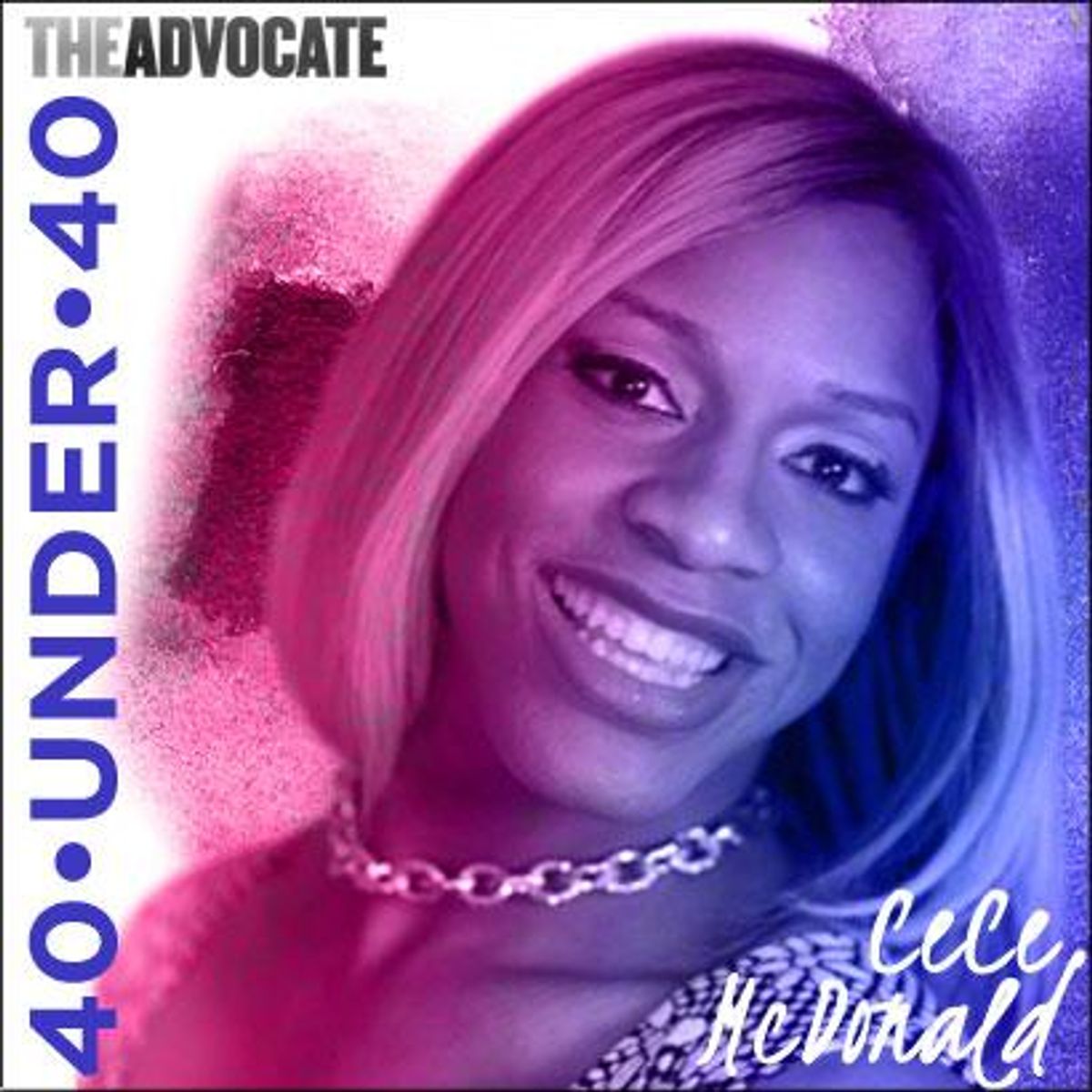CeCe McDonald has become the face of a problem too few even knew existed.
"Prisons aren't safe for anyone, and that's the key issue," McDonald said during an interview with MSNBC's Melissa Harris-Perry in January, one of a number of appearances helping raise awareness.
Earlier this year, McDonald was released from prison after serving 19 months of a 41-month sentence over a physical altercation that changed her life and ended in the death of her assailant. Since her release, the 26-year-old is emerging as the poster child for transgender victims of the justice system.
With her newfound notoriety, McDonald puts a face on the struggles trans women face in prison -- such as being placed in facilities that don't match their gender, an elevated risk of sexual assault, and nonstop verbal abuse. And she's using her voice to make a case against the way we treat prisoners to begin with. Because of that, she has encountered a generally positive reception from transgender rights allies, which she said came as a surprise.
"I never expected that people would look up to me," she said in an interview with The Advocate earlier this year. "In prison, I got lots of letters of support. It showed that people cared. I never thought that people were actually seeing me as this leader or a role model."
Even before her release, though, McDonald started working with Orange Is the New Black star Laverne Cox on Free CeCe, a documentary on track for a 2016 release that will explore the failures of the justice system and the systemic oppression and discrimination trans women of color are forced to endure, all using McDonald's own story as a template.
"In the documentary you'll see me as a person, with my family and friends -- seeing the personality and the humor, and the life that I have and share with others," McDonald said.
McDonald is the proof that it's not enough to talk about the statistics regarding transgender people in prisons across the country. McDonald's story made that all-too-familiar plight real to those who don't know transgender people or who think transgender people will fare fine in prison. Her story, though, begins with injustice even before she found herself behind bars.
In June 2011, McDonald and four of her friends were verbally and physically assaulted by Dean Schmitz, Jenny Thoreson, and Molly Flaherty. According to McDonald's friend Larry Tyaries, the attackers began calling McDonald and her group a number of homophobic, transphobic, and racist slurs. Flaherty (who pleaded guilty to third-degree assault and was sentenced to 180 days in jail) then smashed a glass on McDonald's face, leaving a gash that would require 11 stitches.
Schmitz pushed a then-bleeding McDonald to the ground. As Schmitz approached her with his hands balled into fists, McDonald grabbed a pair of scissors she had been carrying. McDonald stabbed Schmitz with the scissors, ultimately killing him. McDonald was charged with second-degree murder in Schmitz's death, though McDonald's lawyer argued that what transpired was an act of self-defense.
McDonald accepted a plea deal in order to avoid the 25-year prison sentence she faced. Despite initial hopes that she'd be placed with other women, McDonald served 19 months in a men's correctional facility.
"A lot of time people don't know the circumstances that come along with trans women in prison," McDonald told The Advocate, discussing the often uncertain nature of trans placement in prison. For one example, transgender women are frequently placed in men's facilities and forced into solitary confinement as a safety precaution. This type of treatment, when endured for prolonged periods of time, has been shown to result in permanent mental and emotional harm.
The "National Transgender Discrimination Survey," published by the National Gay and Lesbian Task Force and National Center for Transgender Equality in 2011, revealed an alarming statistic: One in six transgender Americans has been to prison, including nearly half of all black transgender people. The survey also found that 16 percent of respondents reported being physically assaulted while incarcerated and 15 percent said they had been sexually assaulted. That backs up a California study from 2009 that had already found trans inmates were 13 times more likely to be sexually assaulted than others.
McDonald draws comparisons between what she actually experienced while in prison and the fictional experience of Orange Is the New Black character Sophia Burset, played by Cox.
"Because Laverne plays a woman who has had gender-reassignment surgery, she was allowed to be in a women's prison because, in most states, that's how it is," she said. "A lot of times, when a woman has had gender-reassignment surgery, she's allowed to be in a women's prison, and a lot of times, she's not," raising questions about the inconsistencies seen throughout the justice system, and why there needs to be a push for standardized procedures for trans incarceration.
"I feel like, at first, I wasn't ready for this type of leadership, this type of position," McDonald said. "But there's no one out there who's really saying it. There are people like Laverne Cox and Janet Mock, and people in the trans community who work hard to raise awareness of trans issues, but there aren't enough of us that are spreading the word about injustices, discrimination, and dehumanization of the LGBTQI community."
McDonald probably did not have plans to become a fighter for prison reform or transgender rights on the summer night in 2011 that changed her life. But now that she's been through a prison and back, she's come through the other side with a new purpose.
"If I need to take this position, to use this platform to get this word out, then I will," she said. "I want to see some type of change with the cis and trans communities. We need to be more collective, have an initiative to change the hate, discrimination, and injustices for the LGBTQI community."
This is one of eight profiles that The Advocate released this week for the annual "40 Under 40" list. From now through Friday, August 8, readers are asked to vote on who you think should be on The Advocate's digital edition cover. Then the remaining 32 honorees will be released in August along with the new cover. Go to Facebook to vote now!













































































